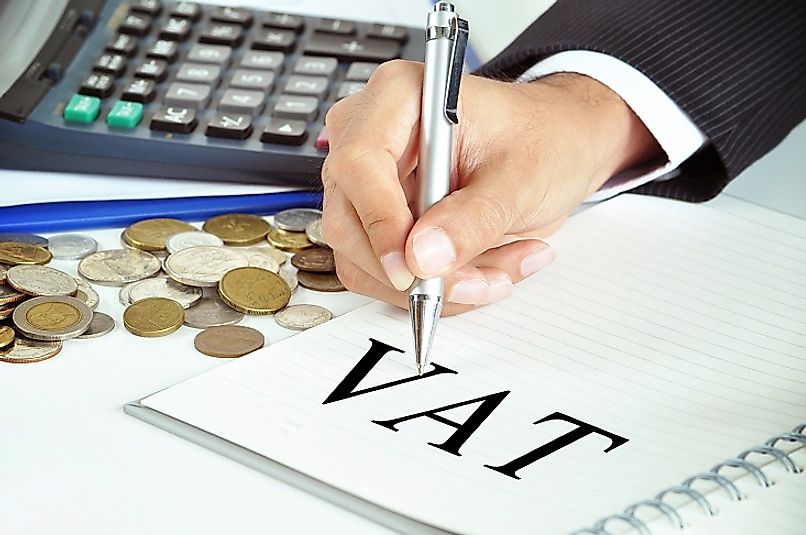What Is a Sales Tax?
What is a sales tax ?
A sales tax is a consumption tax imposed by the government on the sale of goods and services. A conventional sales tax is levied at the point of sale, collected by the retailer, and passed on to the government. A business is liable for sales taxes in a given jurisdiction if it has a nexus there, which can be a brick-and-mortar location, an employee, an affiliate, or some other presence, depending on the laws in that jurisdiction.
Understanding Sales Tax
Conventional or retail sales taxes are only charged to the top user of an honest
or service. Because the bulk of products in modern economies undergo variety of stages of producing , often handled by different entities, a big amount of documentation is important to prove who is ultimately responsible for nuisance tax . for instance , say a sheep farmer sells wool to a corporation that manufactures yarn. To avoid paying the nuisance tax , the yarn maker must obtain a resale certificate from the govt. saying that it's not the top user. The yarn maker then sells its product on to a garment maker, which must also obtain a resale certificate. Finally, the garment maker sells fuzzy socks to a mercantile establishment , which can charge the customer nuisance tax along side the worth of said socks.
Different jurisdictions charge different sales taxes, which frequently overlap, as when states, counties, and municipalities each levy their own sales taxes. Sales taxes are closely associated with use taxes, which applies to residents who have purchased items from outside their jurisdiction. These are generally set at an equivalent rate as sales taxes but are difficult to enforce, meaning they're in practice only applied to large purchases of tangible goods. An example would be a Georgia resident who purchases a car in Florida; she would be required to pay the local nuisance tax , as if she had bought it reception .
Excise Taxes
In general, sales taxes take a percentage of the worth of products sold. for instance , a state may need a forty five nuisance tax , a county 2%, and a city 1.5%, in order that residents of that city pay 7.5% total. Often, however, certain items are exempt, like food, or exempt below a particular threshold, like clothing purchases of but $200. At an equivalent time, some products carry special taxes, referred to as excise taxes. "Sin taxes" are a sort of excise , like the local excise of $1.50 NY City charges per pack of 20 cigarettes on top of the State excise of $4.35 per pack of 20 cigarettes.
(Image sources form https://blog.cengage.com/wp-content/uploads/2020/04/exciseTax.jpeg)
Value Added Tax
The U.S. is one among the few developed countries where conventional sales taxes are still used (note that, with limited exceptions, it's not the federal that charges sales taxes, but the states). In most of the developed world, VAT (VAT) schemes are adopted. These charge a percentage of the worth added at every level of production of an honest within the fuzzy sock example above, the yarn maker would pay a percentage of the difference between what they charge for yarn and what they buy wool; similarly, the garment maker would pay an equivalent percentage on the difference between what they charge for socks and what they buy yarn. Put differently; this is often a tax on the company's gross margins, instead of just the top user.
(Image sources from: https://worldatlas.com/r/w768/upload/32/61/ca/value-added-tax.jpg)
(Article sources from : https://www.investopedia.com/terms/s/salestax.asp)
If you need any types assistance regarding your sales tax you can contact us @ www.cpacb.com



Comments
Post a Comment